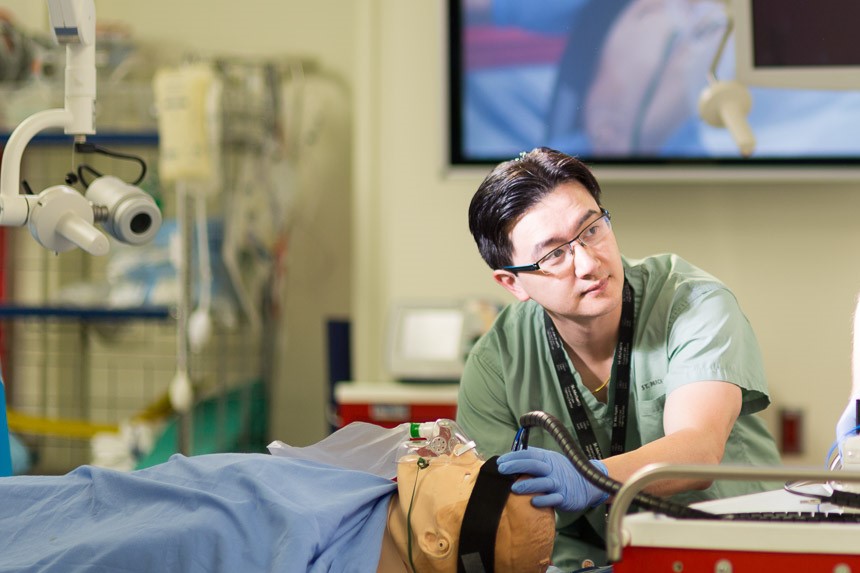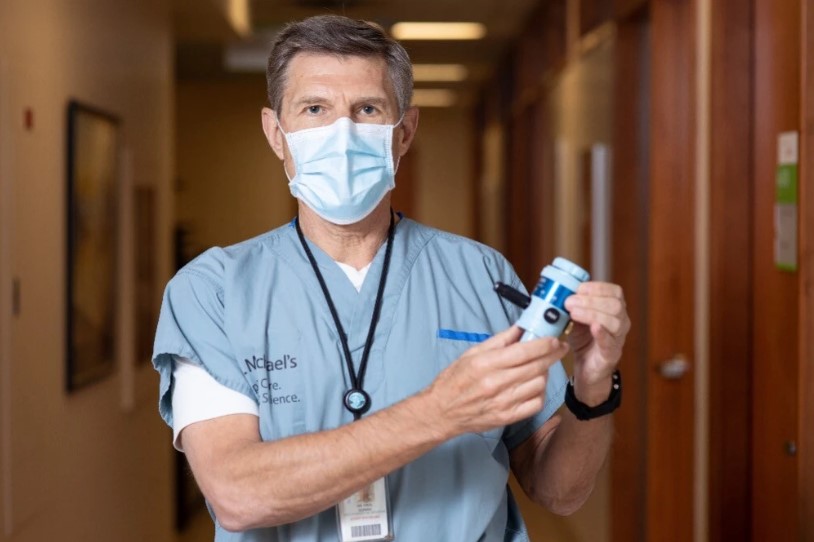A total change might be coming in the way paramedics use adrenaline
A Unity Health Toronto research team is asking first responders to rethink the conventional use of adrenaline in cardiac arrests

At a glance
Issue
Only in Canada, more than 30,000 people experience cardiac arrest every year, and most cardiac arrest patients die from brain damage caused by absence of blood flow. Conventional use of high-dose adrenaline helps the heart but may harm the brain.
Research
The EpiDOSE clinical trial is the first study to test the effects of a low total dose of adrenaline compared to the conventional use during CPR in adults who experience an out-of-hospital cardiac arrest.
Impact
Results from Dr. Dorian and Dr. Lin's study may change cardiac arrest treatment in Canada and worldwide.
Further Reading
What if the standard medical practice for restarting a heart might be wrong? Worse yet, what happens when that conventional knowledge isn't grounded in research on humans at all? For more than 50 years, the standard practice for treating cardiac arrest is 1mg of adrenaline (also called epinephrine) every three to five minutes without a total limit. And while no doctors are disputing that epinephrine restarts the heart, an increasing body of literature is pointing to its devastating side effects on the brain.
A clinical trial set to begin this year, led by cardiologist Dr. Paul Dorian, emergency physician Dr. Steve Lin, and their team at Unity Health Toronto, is bringing paramedics from across Canada together to rethink the conventional use of adrenaline in out-of-hospital cardiac arrests.
High-dose adrenaline may be helping the heart but harming the brain
Most cardiac arrest patients die from brain damage caused by absence of blood flow—the brain is the weakest link, Dr. Dorian explains. Remarkably, heart cells can survive for up to 45 minutes without oxygen, whereas brain cells die within five minutes. When adrenaline is injected into the body, it constricts blood vessels—this is to maintain blood pressure when we're injured—but those constricted blood vessels inadvertently reduce blood flow to the brain.

"We think what high-dose adrenaline does is that it helps the heart but it harms the brain, and that's why we think lower doses will be better," says Dr. Lin.
This Canadian study isn't alone in pointing to the high risks of epinephrine used without a limit. He points to a British study, with results published during COVID-19, that found that while adrenaline injections resulted in a small increase in the survival rate of cardiac arrest patients, it carries high neurological risks. Tellingly, one review's tagline is "big study, small result."
Where does the conventional wisdom on adrenaline come from?

In short, it was an extrapolation from animal studies. "There was an animal study in 1950 that suggested that you want to give as much adrenaline as you can," says Dr. Dorian. "The idea that there should be no limit was just common sense—if the drug works, just keep giving it until it stops working or until something happens.
Preliminary research performed on pigs in 2019 "showed tentatively that low doses of adrenaline seemed to be helpful, and high doses of adrenaline seemed to be harmful," he says. Dr. Dorian is now moving the study from animals to humans, with the aim of changing paramedic practice for the better.
Bringing together medical research and paramedic practice
What makes Dr. Dorian's study more complex is the involvement of paramedic agencies. Paramedics are usually the first on the scene during a cardiac arrest, and this study focuses not on hospital practices but out-of-hospital treatment from first responders. However, it's not as easy as asking a paramedic if they'd like to participate. Every municipality has its own paramedic agency independent of any other municipalities, and therein lies the gap between medical consensus and in-the-field practice.
"Every paramedic agency makes its own rules," says Dr. Dorian, and every medical director calls for the use of adrenaline in cardiac arrest because it is used globally, not because of science-based evidence. "There's no formal rules established because we just don't know."
The bureaucratic hurdles of partnering with many different agencies complicated the study, but there are also strict ethical standards that apply whenever patients cannot provide consent such as when they are unconscious. "It's more complicated to do this kind of research that involves so many entities than standard medical research where the patient is consenting," says Dr. Dorian.
Changing practice in hundreds of paramedic agencies across North America—not to mention the rest of the world—might seem impossible, but it has happened before. Dr. Dorian and Dr. Lin are hopeful that this trial will influence medical professionals to revise outdated medical practice and ultimately improve the chances of patients who suffer from a cardiac arrest.
- Date modified: